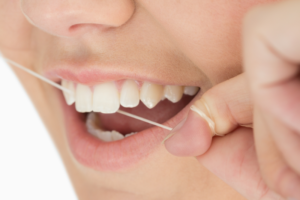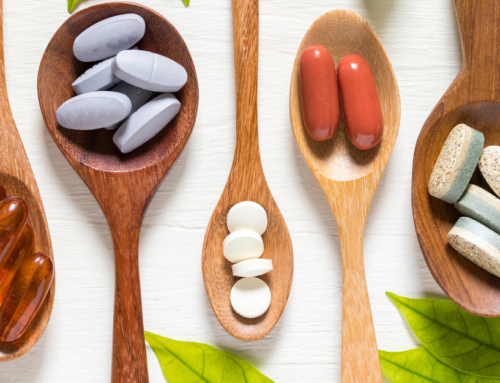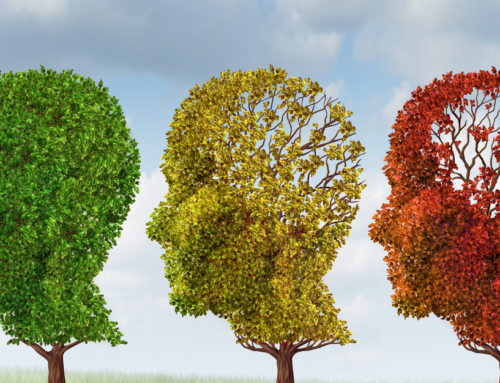Depression and anxiety are hitting all-time highs these days, sending millions of Americans in search of relief. 
While many avenues reduce or eliminate symptoms, particularly functional medicine protocols that reduce chronic inflammation, one must still tend to the health of the psyche. One powerful but overlooked relief from depression and anxiety is to spend time volunteering.
Volunteering has been shown to relieve depression and anxiety, lower blood pressure, release the social bonding hormone oxytocin, improve contentment, and trigger the same dopamine reward centers in the brain that food, drugs, and sex trigger.
In fact, studies on volunteering suggest it’s beneficial for us because the human brain is wired to help others. Although greed and selfishness are characteristic human traits, researchers have also found that altruism and cooperation are inherent qualities that set us apart from much of the animal kingdom.
Volunteering can be a way to exercise these areas of the brain and the mind that can easily go neglected in our overly busy survival-oriented society. However, human survival over the millennia has been credited to our ability to work together in child rearing, hunting, gathering, creating domiciles, and caring for sick or older members of the community.
Given our evolutionary history, it’s no wonder so many people are depressed and anxious. Social isolation and loneliness are considered just as risky to health as are obesity and smoking. Most Americans live in single-family dwellings with no links to their neighbors or a community.
How volunteering helps relieve depression and anxiety
Depression and anxiety can be very inwardly focused disorders. Even if that focus is intensely negative, it creates a feeling of separation and isolation from others. People with these disorders also commonly complain of feeling like they are useless and a burden to others.
Volunteering, on the other hand, has been shown to help people feel more connected to others, more optimistic, and more useful and purposeful. This is believed to be due in part to the release of oxytocin that volunteering triggers. Oxytocin is a “love and bonding” brain chemical that is also released during sex or from cuddling a baby or a pet.
Oxytocin not only makes you feel better, it has also been shown to reduce stress levels and lower inflammation — two powerful factors in causing depression.
Volunteering works on another powerful neurotransmitter when it comes to mood: Dopamine. Dopamine is our “pleasure and reward” neurotransmitter that is released when we have feelings of accomplishment, pleasure, or reward. Addictions are dopamine surges run amuck as people become hooked on the dopamine rush that comes with drugs, gambling, and other pleasurable indulgences.
However, sufficient dopamine is necessary to help us get things accomplished as well as to feel self-worth and purpose in life, two things people with depression often lack. Volunteering triggers a healthy dopamine release that then extends into other areas of their life.
Researchers also point to the fact that volunteering simply takes you out of yourself. Although dismissing your woes doesn’t make them go away, having compassionate perspective for other people’s struggles can help put your own in healthier perspective.
Also, while volunteering has mental health benefits, a caretaker position is also your source of income is commonly linked with increased stress and burnout.
The paradox of “being too busy” to volunteer
Most people cite their overly busy lives and booked schedules for not being willing or able to volunteer. But the experience of volunteers frequently shows that a paradoxical effect happens when you work it into your schedule anyways — the stress-lowering and mood-boosting effects of volunteering reduce the sense of chronic overwhelm that many people experience daily.
Volunteering can calm the over anxious mind and relax the muscles and breathing.
Functional medicine and depression
Although volunteering has proven benefits for depression and anxiety, it’s important to nevertheless pay attention to physiological factors that cause depression.
Depression has now been linked to things like chronic inflammation, lack of gut bacteria diversity, too much bad gut bacteria, leaky gut, and compromised brain health, such as from a past brain injury or brain inflammation.
These dysfunctions can stem from food intolerances, blood sugar imbalances, poor nutrition, a sedentary lifestyle, undiagnosed autoimmunity, hidden infections, or other underlying disorders that antidepressants will not address.
Ask my office for more ideas on how functional medicine can help you relieve depression and anxiety.
We live in a sea of toxins and we all carry significant amounts of heavy metals and environmental toxins in our bodies.
Even if you eat all organic foods, drink filtered water, and use non-toxic home and body products, you will still come in contact with numerous toxins as a part of daily modern life.
Thankfully, we can support our health and buffer the impact of these toxins on our bodies. Strategies include a diet that helps your body detoxify regularly and that minimizes toxic exposure, anti-inflammatory protocols to buffer the inflammatory effects of toxins on your body, supporting the pathways of elimination, and including binders in your regular protocol to “sponge up” toxins in your system.
Anti-inflammatory diet
Toxins are inflammatory to the body. One of the best things you can do is reduce your inflammatory load with an anti-inflammatory diet. Although even organic foods are shown to contain toxins these days due to air, water, and soil contamination, choosing foods that have not been produced with pesticides, hormones, or antibiotics will reduce your overall burden.
You also want to keep your blood sugar stable by avoiding sugars and foods that are high in processed carbohydrates. This means not letting yourself crash from low blood sugar and not overeating yourself into a food coma.
Especially important is to avoid the foods that trigger an inflammatory response in you. If you have a food sensitivity or intolerance, eating a food that flares your immune system will keep it in a state of constant red alert, stoking inflammation throughout your body. The most common immune reactive foods are gluten, dairy, soy, egg, and corn.
In addition to minimizing your dietary sources of inflammation, certain supplements can also tame and reduce inflammation.
Studies show taking larger doses of the antioxidants resveratrol and curcumin can help protect the body from the damage of toxins, especially if you take them together in a liposomal form.
Glutathione that is liposomal or in another absorbable form is another way to lower inflammation and protect your body. In fact, insufficient glutathione increases your risk of developing chemical sensitivities. In addition to taking an absorbable glutathione you can also raise glutathione levels inside your cells with n-acetyl-cysteine, cordyceps, Gotu Kola, milk thistle, L-glutamine, and alpha lipoic acid.
Binding toxins in your body
Taking nutritional compounds on a regular basis that bind with toxins for easy removal is another way to buffer your body. Binders can help remove heavy metals, environmental toxins, mycotoxins from molds, infectious bacteria, and fungal infections from your body.
Here are some examples of effective binders:
Modified citrus pectin: This is derived from citrus peel and processed in a way that it allows it to enter the bloodstream and bind with toxins for safe elimination from the body. Modified citrus pectin also serves as a great “prebiotic,” or a nutrition source for your good gut bacteria. A healthy gut microbiome is critical to helping protect you from toxins. Look for a source that is free of fillers.
Activated charcoal: Activated charcoal is a popular and affordable binder for toxins. It can also help soothe common digestive complaints.
Bentonite clay: Bentonite, montmorillonite, and illite (French clay) are used to bind toxins. When mixed with water, these clays develop a sponge like quality and take on an electrical charge to attract harmful compounds. Look for a quality product that does not have lead contamination.
Zeolite: Zeolite is formed from volcanic rock and ash and is a well-known binder for heavy metals and other toxins.
Chlorella: Chlorella is a blue-green algae that has an affinity for mercury and lead. It is also rich in B vitamins, minerals, and antioxidants. You may need to avoid chlorella if you take blood thinners.
Silica: Most people think of silica to improve their hair, skin, and nails, but it’s also good at binding metals such as thallium that are harder to detox.
You must support your pathways of elimination when you detoxify
Binders work great at latching onto toxins, but if your body’s pathways of elimination are faulty, you could make yourself more toxic. You also want to ensure you are sufficiently mineralized — heavy metals can bind to cellular receptors in the absence of necessary minerals.
Ways to support the elimination of toxins include supporting healthy liver and gallbladder function, supporting healthy bowel elimination, and making sure you stay hydrated and take care of your kidneys and bladder. Eating 25–38 grams of fiber a day, staying well hydrated, eating foods that are good for the liver (like bitters and greens), exercising regularly to stimulate the lymphatic system, and sweating regularly are some examples of how to keep toxins flowing out of your body.
Avoiding chemical sensitivities
Although we want to minimize our overall toxic burden, we especially want to avoid developing chemical sensitivities. In the end, your overall toxic burden may not matter as much as whether you have an immune reaction to these toxins. You can react to a toxin the same you can react to gluten or dairy. This is problematic as it’s much harder to eliminate a toxin from your environment than a food from your diet, especially if that toxin is prevalent in the air, such as benzene, or in plastics, such as BPA.
This is why it’s so important to live an anti-inflammatory lifestyle. If you already have chemical sensitivities, ask my office about methods to lower your sensitivity so you can better tolerate everyday life.

Floss your teeth daily to reduce your risk of stroke
You may be familiar with common stroke-prevention strategies: Exercise regularly, eat plenty of vegetables, minimize stress, and keep inflammation at bay. But did you know taking good care of your teeth and gums is a major way to lower stroke risk?
A new study has found a significant link between stroke and oral bacteria. An analysis of blood clots from 75 ischemic stroke patients found almost 80 percent of them had oral bacteria DNA concentrated in the blood clots that weren’t found in other blood samples from the same patient.
The presence of oral bacteria in blood clots rounds out a much larger picture that shows the role gum disease and oral bacteria play in cardiovascular and neurological health.
The same research team has also found that blood clots containing oral bacteria cause heart attacks and brain aneurysms, that thromboses in the leg veins and arteries contain oral bacteria, and that oral bacteria is linked to heart infection.
Other research has linked oral bacteria from gum disease with an increased risk of Alzheimer’s. The bacteria produce toxins in the brain that give rise to the misfolding of proteins in the brain that is the hallmark of Alzheimer’s.
An ischemic stroke occurs when a blood clot starves a part of the brain of blood flow and vital oxygen, causing massive tissue damage. It is commonly caused by the narrowing and hardening of the arteries from plaquing, or atherosclerosis.
There is evidence that oral bacteria activates platelets and speeds up the development of atherosclerosis and blood clotting.
Here’s a tip to motivate you to floss
We get it, flossing is tedious and annoying. You just want to brush your teeth and be done.
Here’s a little tip that may motivate you to floss and brush more regularly: After you floss between a couple of teeth, smell your floss. If it has a foul odor that’s a sign you’ve got oral bacteria accumulating on your teeth and gums. This is also a sign your breath probably stinks as well! Smell check your floss after flossing each section of teeth — you may find areas that need extra attention.
Reacquaint yourself with healthy flossing and brushing habits and consider investing in a water flossing device. These devices use water to deliver extra cleaning power to the teeth and to stimulate gum tissue, so it stays healthy. However, please note that a water flosser should be an adjunct to flossing and not a substitute. Water flossing is not as effective as using dental floss.
Use functional medicine to prevent strokes
Healthy teeth and gums also depend on a healthy diet and lifestyle. This ties in with general stroke prevention strategies — 90 percent of strokes are caused by dietary and lifestyle habits.
Strokes are the third leading cause of death in the United States and the leading cause of disability.
Studies have found the following factors are the most common causes of strokes:
- High blood pressure
- Smoking
- Poor diet
- Lack of exercise
- Excess alcohol
- Stress and depression
- Diabetes
- Excess abdominal fat
- Heart disorders
As research continues, poor oral hygiene may get added to this list.
Functional medicine strategies to prevent stroke
Focus on whole foods, plenty of vegetables, and healthy fats. Ditch the sodas, desserts, sweet coffee drinks, and processed foods. It might be hard at first, but you’ll start to feel heaps better.
Stabilize blood sugar
High blood sugar from too many sweets and processed carbohydrates causes chronic inflammation, which damages and thickens arterial walls and promotes the formation of arterial plaques and blood clots. Type 2 diabetes and insulin resistance, or pre-diabetes, increase your risk of stroke by two to four times.
Regular exercise prevents strokes and makes you feel awesome
Exercise is a magic bullet when it comes to preventing strokes and promoting a healthy brain. Regular physical activity keeps blood vessels strong, improves oxygenation of the brain, and increases your metabolism. Exercise after a stroke also significantly reduces the severity of the repercussions and improves recovery.
Ask my office how we can help you lower your risk of stroke and support your brain health.
Google is censoring valid health information; opt for alternate search engines for better results
Anyone who has learned how to manage Hashimoto’s hypothyroidism or another autoimmune condition will tell you they had to learn it on their own. The vast majority of doctors either do not test for or do not adequately treat Hashimoto’s, an autoimmune disease that attacks and damages the thyroid gland, causing weight gain, hair loss, fatigue, depression, and other symptoms. Now, the ability to find health advice backed by peer-reviewed, scientific literature is seriously compromised due to censorship, or blacklisting, by Google. Google is increasingly censoring legitimate information and instead sends people to conventional medical, pharmaceutical-oriented sources of information such as WebMd.
Most doctors do not adequately test for or treat autoimmune disease such as Hashimoto’s hypothyroidism because there is no drug for autoimmunity. True, people are prescribed thyroid hormone replacement medication, which is frequently necessary. However, it does not address the ongoing and progressively worsening immune attack on the thyroid gland. That is why many people do not feel better when they begin taking thyroid hormone.
The lack of adequate autoimmune care in conventional medicine means millions of people go misdiagnosed or undiagnosed. In most cases, autoimmune destruction has to be advanced and severe before an autoimmune disease can be diagnosed and treated with steroids, surgery, or other methods that are invasive and riddled with side effects and problems. For instance, nerve damage has to be significantly advanced before conditions such as multiple sclerosis or type 1 diabetes are caught, while patients suffer for years.
Add to this studies that show the inherent sexism in conventional medicine. Women account for more than three-quarters of autoimmune patients. Yet when women go their doctors with complaints of autoimmune symptoms, most are not adequately tested. Instead, they are told they have depression or anxiety, that they need to lose weight and exercise, that they are making it up, or that it’s just aging.
Until now, millions of people have been able to successfully learn how to manage their Hashimoto’s hypothyroidism and other autoimmune conditions through online sources based on peer-reviewed science. They have also been able to find healthcare practitioners who are knowledgeable in how to apply this science to help manage chronic conditions.
Please note that just because something is in the published scientific literature, that does not mean your local medical doctor is either aware of it or supports it. There is a huge gulf between the scientific literature and the doctor’s office, with pharmaceutical companies wielding significant influence over doctors’ practices and education.
Now, Google is limiting our access to legitimate information and redirecting searches toward conventional sources, which are extremely limited when it comes to chronic illness.
True, opportunists and snake oil salesmen abound on the internet and consumers must do their due diligence in rooting out valid sources of information and good communities to help them on their health journey.
Vitriolic corporate-driven public controversies lend a hand in the Google censorship. Rather than looking at the peer-reviewed literature on the links between environmental toxins and brain inflammation in the developing child’s brain for instance, complex neuroimmune topics have been reduced to crude black-and-white arguments that have no basis in relevant neurophysiological mechanisms.
While Google is penalizing many science-backed integrative health sites so they no longer show up on the first page, other search engines such as Bing, Yahoo, DuckDuckGo, and Ecosia (a search engine that plants trees based on searches) still rank sites legitimately.
About one billion health questions a day come through Google. Now, they are routing those searches away from such well-known sites as Mercola, PaleoHacks, Bulletproof, GreenMedInfo, Self-Hacked, Kelly Brogan, and many more.
Instead, seekers are routed to sites such as WebMD, Healthline, Mayo Clinic, and other institutional sites. While these sites offer worthwhile information, they are not yet caught up to the science surrounding the many chronic illnesses that have become so common today. They even provide false information in some instances, especially in regards to nutritional compounds.
Google is unfairly throwing its weight around in other industries as well, and the EU levied its third antitrust fine against Google earlier this year.
Don’t let Google bully you into Big Pharma’s pipelines. If you are looking for sources of legitimate health information that have been blacklisted by Google, try alternative sites such as Bing, Yahoo, DuckDuckGo, and Ecosia.
In the meantime, we attend educational conferences to stay up to date on the latest research and clinical protocols to help manage autoimmune and chronic conditions such as Hashimoto’s hypothyroidism. As the field is ever evolving, it’s important to stay abreast of developments. Contact my office if you need help managing your chronic health condition.







